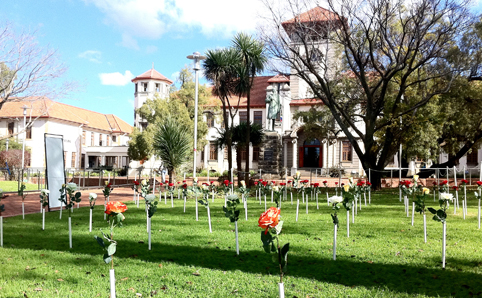Latest News Archive
Please select Category, Year, and then Month to display items
21 July 2021
|
Story Rulanzen Martin
|
Photo Charl Devenish
 Even after her premiership, Helen Zille has remained a powerful force within the South African political landscape. Here she is pictured during a workshop hosted by the Department of Political Science and Governance in February 2020.
Even after her premiership, Helen Zille has remained a powerful force within the South African political landscape. Here she is pictured during a workshop hosted by the Department of Political Science and Governance in February 2020.
Zille will be talking to
Prof Hussein Solomon in the Department of Political Studies and Governance at the University of the Free State.
You can join this interesting discussion on:
Date: 29 July 2021
About the author:
Helen Zille is a South African journalist, activist, and politician who served as the national leader (2007-2015) of the Democratic Alliance (DA), the official opposition party in South Africa. She was also Premier of the Western Cape from 2009 until 2019. Zille’s autobiography, Not without a Fight, was published in 2016.
“Month of Compassion”
2011-05-24
 |
|
Hundred roses were planted in front of our Main Building
Photo: Duard Grobbelaar
|
The Health and Wellness Centre at our university recently planted roses on the Main Campus in memory of people who passed away in the past year due to some illnesses and other personal issues.
Each rose represented 2 550 South Africans who have passed away and 100 roses were planted in front of the Main Building on our Main Campus. There were 51 red roses which represented deaths due to HIV, 14 yellow roses for those who passed away due to ischemic heart disease, 13 white roses for deaths caused by stroke, 11 orange roses for deaths caused by turbeculosis and 11 pink roses for deaths caused by interpersonal violence.
The rose garden managed to draw a lot of attention and people, many of which were members of our own staff and several students, actually took time from their busy schedules to have a look at its spectacular beauty.